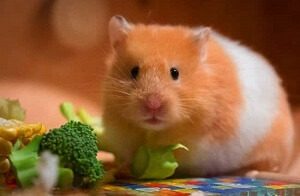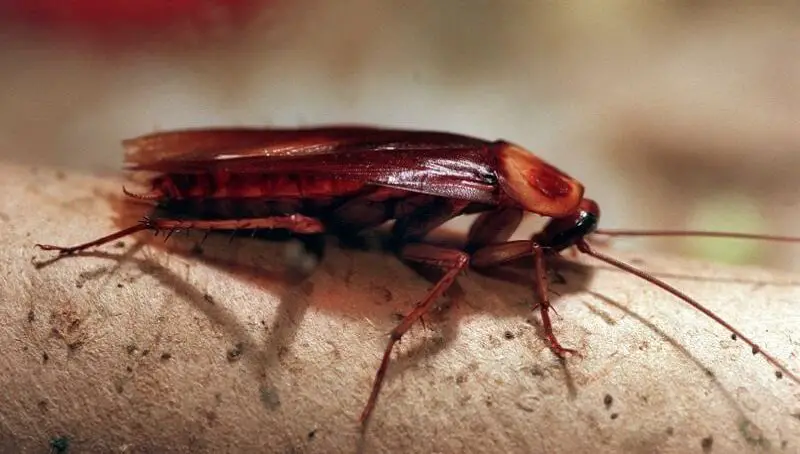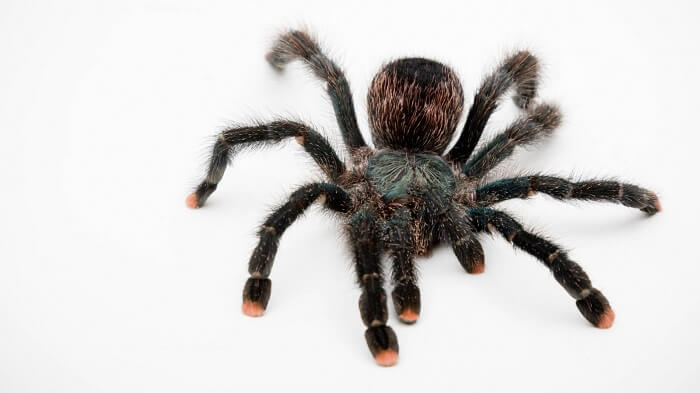You might not know this but cockroaches are pretty nutritious and are slowly starting to pop up in all kinds of weird diets all around the world. The Institute for Stem Cell Biology and Regenerative Medicine in India (inStem) has conducted a study that has shown that cockroach milk is one of the best superfoods of our time.
During this particular research, it has been proven that milk produced by the Pacific beetle cockroach to feed its babies is packed with protein crystals, healthy fats, sugars, and amino acids. Yes, you’ve read that right, some cockroaches have a mammal-like ability to make their own milk.
So, can hamsters eat cockroaches?
Yes, hamsters can eat cockroaches, although they aren’t recommended as a regular food type for hamsters.
You will usually find in 100 grams of cockroaches about 24 micrograms of vitamin B12 and around 10 times more RDA. B12 is known to help with the development of new blood cells and keeping the nervous system healthy, but it also enables the creation of the genetic material in cells, the well-known DNA.
The bad aspect about roaches is that, although nutritious, they will contain chitin, a bad compound for hamsters.
You might also like my articles on the Syrian Hamster and on whether hamsters can eat bread or oranges.
 Chitin helps decompose the nutrients in digestive juices before the pet’s body has a chance to make use of them.
Chitin helps decompose the nutrients in digestive juices before the pet’s body has a chance to make use of them.
When ingested in considerable amounts, it will open the road to malnutrition for the animal, or, in some extreme cases, even starvation. You might think that you are feeding it with roaches, but your tiny pet might actually starve from the inability to digest any nutrients it receives.
If you want to feed your pet some insects, then you should go for mealworms instead of cockroaches for your pet hamster, because these come with everything a roach will bring to the table, without the side effects of chitin.
Mealworms also come with less fat and protein, another reason to pick them over cockroaches in a balanced diet.
What foods should your hamster eat?
When trying to figure out foods to add to a hamster’s diet or treats to give it from time to time, consider these:
- Clean, filtered, fresh, chlorine-free water, changed daily. As you might expect, water is very important for the proper hydration of your pet.
- Timothy hay. Hay will keep your hamster’s teeth strong and healthy, while also keeping it fed, making this a great gnawing food.
- Fruits. Fruits are the treat to go when you don’t know what to feed your pet with, and hamsters will really enjoy bananas, strawberries, pears, and apples. They should only represent a supplement to a balanced diet and their consumption should be kept under strict moderation. You should also remove any fruits or vegetables that your pet refuses to eat for 24 hours so that they don’t rot inside the cage.
- Vegetables. Some of the best foods for your hamster will be vegetables, and out of all the vegetables, the best would be organically grown fresh greens. dark green veggies, artichokes, spinach, broccoli spears, carrot tops, dandelion greens, and Romaine lettuce are some of the best choices. Other vegetables like iceberg lettuce or fruits like watermelon, which are known to contain high amounts of water, should be avoided because they can cause diarrhea in your pet. You should never forget to thoroughly wash the vegetables to make sure you remove any harmful pesticides from their surface.
- Grains. This should make up for most of the food your hamster will get. It should be around one tablespoon of grains daily to keep the hamster full. These grains come with the needed carbohydrates and protein that your hamster will need. They can be bought in prepared mixtures designed for hamsters.
What should you avoid feeding a hamster?
You will not only have to know what to feed your pet but also foods that you should avoid to ensure the safety and healthy development of your pet hamster. The foods below can become harmful to your pet, so make sure you avoid them.
Try to keep your pet away from peanuts, sunflower seeds, or other fatty nuts, because these can lead to obesity. These should only be offered occasionally, as a treat.
- Foods or treats with high-fat content
- Chocolate
- Alcohol
- Caffeine
- Sugar
Final words
Feeding your hamster with cockroaches occasionally or it finding a cockroach in its cage shouldn’t be a problem, but make sure this only happens from time to time and isn’t a common occurrence.




